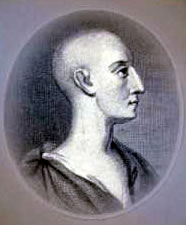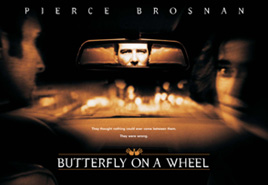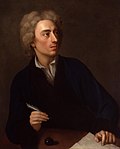Related Research Articles

Jonathan Swift was an Anglo-Irish satirist, author, essayist, political pamphleteer, poet, and Anglican cleric who became Dean of St Patrick's Cathedral, Dublin, hence his common sobriquet, "Dean Swift".
An oxymoron is a figure of speech that juxtaposes concepts with opposite meanings within a word or in a phrase that is a self-contradiction. As a rhetorical device, an oxymoron illustrates a point to communicate and reveal a paradox. A general meaning of "contradiction in terms" is recorded by the 1902 edition of the Oxford English Dictionary.

Suspension of disbelief is the avoidance—often described as willing—of critical thinking and logic in understanding something that is unreal or impossible in reality, such as something in a work of speculative fiction, in order to believe it for the sake of enjoying its narrative. Historically, the concept originates in the Greco-Roman principles of theatre, wherein the audience ignores the unreality of fiction to experience catharsis from the actions and experiences of characters. The phrase was coined and elaborated upon by the English poet and philosopher Samuel Taylor Coleridge in his 1817 work Biographia Literaria: "that willing suspension of disbelief for the moment, which constitutes poetic faith".

Alexander Pope was an English poet, translator, and satirist of the Enlightenment era who is considered one of the most prominent English poets of the early 18th century. An exponent of Augustan literature, Pope is best known for his satirical and discursive poetry including The Rape of the Lock, The Dunciad, and An Essay on Criticism, and for his translations of Homer.

Clement of Rome, also known as Pope Clement I, was the bishop of Rome in the late first century AD. He is listed by Irenaeus and Tertullian as the bishop of Rome, holding office from 88 AD to his death in 99 AD. He is considered to be the first Apostolic Father of the Church, one of the three chief ones together with Polycarp and Ignatius of Antioch.

The breaking wheel, also known as the execution wheel, the Wheel of Catherine or the (Saint) Catherine('s) Wheel, was a torture method used for public execution primarily in Europe from antiquity through the Middle Ages up to the 19th century by breaking the bones of a criminal or bludgeoning them to death. The practice was abolished in Bavaria in 1813 and in the Electorate of Hesse in 1836: the last known execution by the "Wheel" took place in Prussia in 1841. In the Holy Roman Empire it was a "mirror punishment" for highwaymen and street thieves, and was set out in the Sachsenspiegel for murder, and arson that resulted in fatalities.

John Arbuthnot FRS, often known simply as Dr Arbuthnot, was a Scottish physician, satirist and polymath in London. He is best remembered for his contributions to mathematics, his membership in the Scriblerus Club, and for inventing the figure of John Bull.

Mark Akenside was an English poet and physician.
This article contains information about the literary events and publications of 1731.

William Pulteney, 1st Earl of Bath, was an English Whig politician and peer who sat in the British House of Commons from 1707 to 1742 when he was raised to the peerage as the Earl of Bath by George II of Great Britain. He is sometimes represented as having served as First Lord of the Treasury and Prime Minister of Great Britain as part of the short-lived ministry in 1746, although most modern sources do not consider him to have held the office.
Edmund Curll was an English bookseller and publisher. His name has become synonymous, through the attacks on him by Alexander Pope, with unscrupulous publication and publicity. Curll rose from poverty to wealth through his publishing, and he did this by approaching book printing in a mercenary and unscrupulous manner. By cashing in on scandals, publishing pornography, offering up patent medicine, using all publicity as good publicity, he managed a small empire of printing houses. He would publish high and low quality writing alike, so long as it sold. He was born in the West Country, and his late and incomplete recollections say that his father was a tradesman. He was an apprentice to a London bookseller in 1698 when he began his career.

Ambrose Philips was an English poet and politician. He feuded with other poets of his time, resulting in Henry Carey bestowing the nickname "Namby-Pamby" upon him, which came to mean affected, weak, and maudlin speech or verse.

John Hervey, 2nd Baron Hervey, was an English courtier and political writer. Heir to the Earl of Bristol, he obtained the key patronage of Walpole, and was involved in many court intrigues and literary quarrels, being apparently caricatured by Pope and Fielding. His memoirs of the early reign of George II were too revealing to be published in his time and did not appear for more than a century.
In Latin literature, Augustan poetry is the poetry that flourished during the reign of Caesar Augustus as Emperor of Rome, most notably including the works of Virgil, Horace, and Ovid. In English literature, Augustan poetry is a branch of Augustan literature, and refers to the poetry of the 18th century, specifically the first half of the century. The term comes most originally from a term that George I had used for himself. He saw himself as an Augustus. Therefore, the British poets picked up that term as a way of referring to their endeavours, for it fit in another respect: 18th-century English poetry was political, satirical, and marked by the central philosophical problem of whether the individual or society took precedence as the subject of the verse.

An Essay on Criticism is one of the first major poems written by the English writer Alexander Pope (1688–1744), published in 1711. It is the source of the famous quotations "To err is human; to forgive, divine", "A little learning is a dang'rous thing", and "Fools rush in where angels fear to tread".
Charles Gildon, was an English hack writer who was, by turns, a translator, biographer, essayist, playwright, poet, author of fictional letters, fabulist, short story author, and critic. He provided the source for many lives of Restoration figures, although he appears to have propagated or invented numerous errors with them. He is remembered best as a target of Alexander Pope's in both Dunciad and the Epistle to Dr. Arbuthnot and an enemy of Jonathan Swift's. Gildon's biographies are, in many cases, the only biographies available, but they have nearly without exception been shown to have wholesale invention in them. Because of Pope's caricature of Gildon, but also because of the sheer volume and rapidity of his writings, Gildon has come to stand as the epitome of the hired pen and the literary opportunist.
The Epistle to Dr. Arbuthnot is a satire in poetic form written by Alexander Pope and addressed to his friend John Arbuthnot, a physician. It was first published in 1735 and composed in 1734, when Pope learned that Arbuthnot was dying. Pope described it as a memorial of their friendship. It has been called Pope's "most directly autobiographical work", in which he defends his practice in the genre of satire and attacks those who had been his opponents and rivals throughout his career.

Butterfly on a Wheel is a 2007 thriller film directed by Mike Barker, co-produced and written by William Morrissey. A British-Candian joint production, it stars Pierce Brosnan, Gerard Butler, and Maria Bello. The film's title is an allusion to a line of Alexander Pope's poem "Epistle to Dr Arbuthnot": "Who breaks a butterfly upon a wheel?" The line is usually interpreted as questioning why someone would put great effort into achieving something minor or unimportant, or who would punish a minor offender with a disproportional punishment.
Sporus was a young slave boy whom the Roman Emperor Nero had castrated and married as his Empress during his tour of Greece in 66–67 CE, allegedly in order for him to play the role of his wife, Poppaea Sabina, who had died the previous year.
Damning with faint praise is an English idiom, expressing oxymoronically that half-hearted or insincere praise may act as oblique criticism or condemnation. In simpler terms, praise is given, but only given as high as mediocrity, which may be interpreted as passive-aggressive.
References
- ↑ "Expressions& Sayings (W)". Scorpio Tales. Archived from the original on 17 July 2012. Retrieved 2 August 2012.
- ↑ Brewer, E. C. (1 June 2001). Dictionary of Phrase and Fable. Wordsworth Editions Ltd. p. 173. ISBN 1840223103.
- 1 2 3 Representative Poetry Online – Alexander Pope: Epistles to Several Persons: Epistle to Dr. Arbuthnot: complete poem and commentary
- ↑ "Internet History Sourcebooks". Sourcebooks.fordham.edu. Retrieved 13 February 2022.
- ↑ AMPHIBIOUS THING, The Life of Lord Hervey, Lucy Moore – Author, Penguin Books. Line 326 of Pope's poem: "Amphibious thing! that acting either part,"] Archived 11 March 2007 at the Wayback Machine
- ↑ "Gay Love Letters through the Centuries: Town and Country". Rictornorton.co.uk.
- ↑ "Homosexuality in Eighteenth-Century England: Pope's Caricature of Lord Hervey". Rictornorton.co.uk.
- ↑ [ dead link ]
- ↑ Booth, Stanley (2000). The True Adventures of the Rolling Stones (2nd ed.). A Capella Books. pp. 271–278. ISBN 1-55652-400-5.
- ↑ "RIP Article". 31 October 2005. Archived from the original on 31 October 2005. Retrieved 13 February 2022.
- ↑ Roach, Martin; Perry, Neil (1993). The Mission : names are for tombstones, baby. London: Independent Music Press. p. 272. ISBN 1-897-78301-9.
- ↑ "Similarities Digital Album". store.biffyclyro.com. Retrieved 11 February 2019.
- ↑ "Soul Asylum". Genius.
- ↑ "COLDPLAY, 'PARADISE' – SONG REVIEW". PopCrush .
- ↑ Santià, Hamilton (2011). Oasis. Be myself. Arcana.
- ↑ "Butterfly on a Wheel". IMDb.com. 23 August 2007. Retrieved 13 February 2022.
